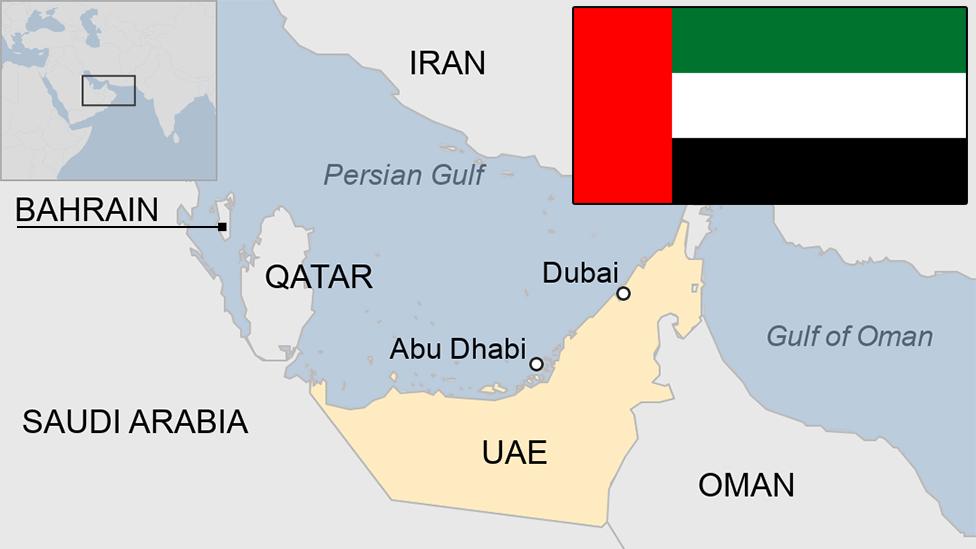UAE charges 'plotters linked to Muslim Brotherhood'
- Published
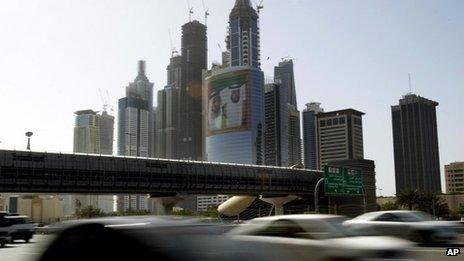
Activists have accused the UAE of cracking down on peaceful activists since the Arab Spring
The United Arab Emirates has ordered 94 people to be tried on charges of trying to seize power.
The attorney general said the suspects had formed a group that publicly called on people to observe the teachings and values of Islam, but in secret sought to overthrow the state.
He said they had links to foreigners, including the Muslim Brotherhood.
The UAE has arrested dozens of alleged dissidents, who have said they are victims of false accusations.
Political parties and demonstrations are banned in the UAE.
Links denied
A statement from Attorney General Salem Saeed Kubaish, external said the suspects had used the media and social networking sites "to turn nationals [UAE citizens] against their government".
"They launched, established and ran an organisation seeking to oppose the basic principles of the UAE system of governance and to seize power," it said.
It said the group raised money through property deals and religious contributions.
Last year authorities detained more than 60 civil society activists, many connected to al-Islah, an Islamist group alleged by the government to have links to the Muslim Brotherhood.
Al-Islah says it favours peaceful reform and denies links to the brotherhood.
The crackdown has triggered complaints from human rights groups.
On Thursday six international human rights organisations including Reporters Without Borders, Amnesty International and the Gulf Center for Human Rights called for "an end to the current crackdown against peaceful human rights defenders and political activists."
The joint statement added: "It appears that 'national security' has been used as a pretext by the Emirati authorities to stifle dissent and repress all activists asking for democratic reforms and respect for human rights."
The organisations said that though some of the detainees are members of al-Islah, others are jurists, law professors at university, lawyers and human rights defenders.
An Emirati human rights activist who asked not to be named told the BBC: "Many of the prisoners have been held in solitary confinement for nearly a year and families see them for perhaps 30 minutes once a month."
He said that the 94 had been denied proper access to lawyers and mistreated while in custody. Fourteen of those being sent to trial are women, relatives of men previously arrested.
The activist said what he called the repression of the people would "not succeed in the long run".
"It will scare people for some time but you cannot scare all of the people all of the time."
The referral of the 94 to the UAE's highest court means that the court's decision is final and there is no right of appeal.
The UAE comprises seven sheikdoms run by ruling families.
Several of its Gulf neighbours - including Bahrain, Yemen, Oman and Saudi Arabia - were rocked by pro-democracy protests inspired by the revolutions in Tunisia and Egypt in 2011.
- Published10 December 2012
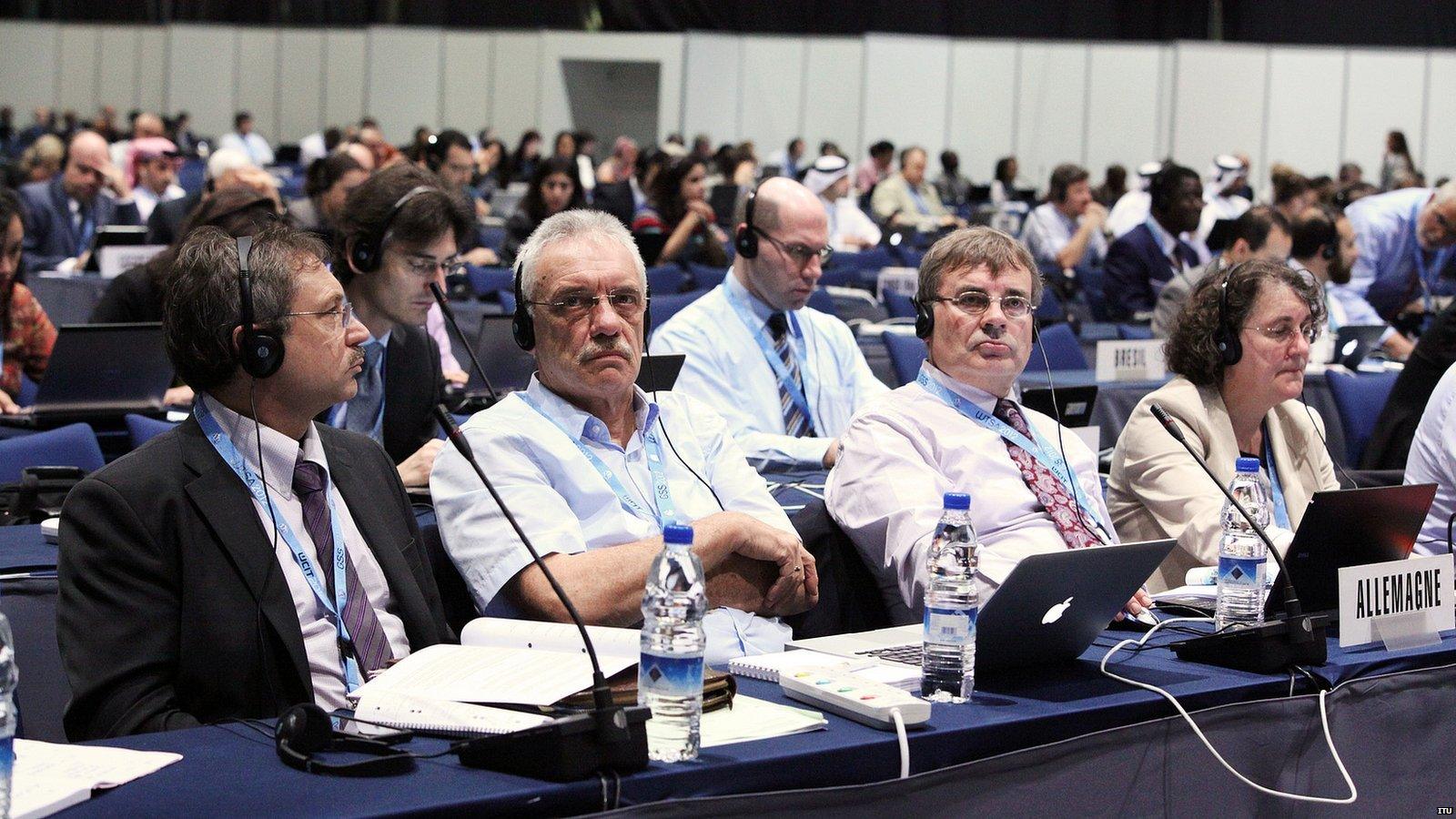
- Published6 December 2012
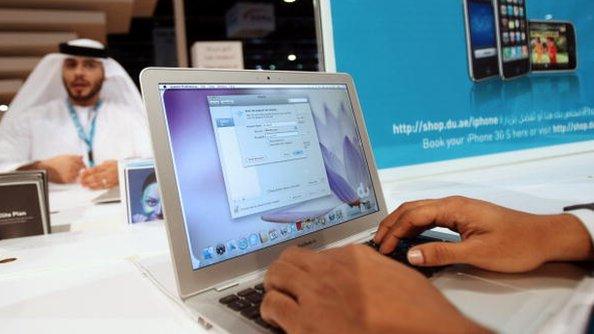
- Published13 November 2012

- Published31 July 2012
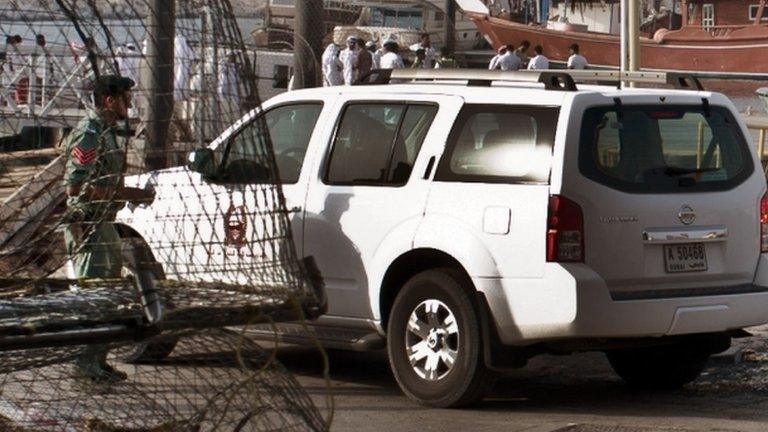
- Published7 September 2023
